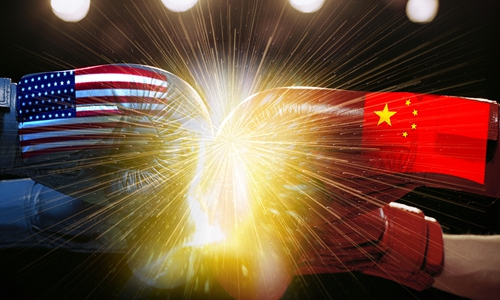
By Chen Lufan
The Trump administration recently submitted a so-called new China strategy report as per the legislative request of the Congress. Adopting the same tone and stance about China as the 2017 National Security Strategy (NSS), the 16-page United States Strategic Approach to the People’s Republic of China claimed that China poses challenges to US in economy, values and security, which shall be countered with awhole-of-government approach.
The report asserted that the US decided to change its strategy toward the Asian country as its China policy in the past 40 years has proved a failure, and threatened to increase public pressure on the PRC government to suppress its “expanding use of economic, political, and military power”.
The report is teeming with the Trump administration’s zero-sum thinking reminiscent of the Cold War, a strong sense of loss at its failed “peaceful evolution”of China, and an eager fidget to contain and suppress China’s development. When asked for a comment on the report, a spokesperson of the Chinese Foreign Ministry responded that this new report deliberately distorts China's political system and strategic intention and hypes up the so-called "China threat", a pretext it uses to trumpet the continuation of all-dimensional hardline policy against China.
That the US would concoct such a report is no surprise. Ever since the Trump administration labeled China as a “revisionist power” and “strategic competitor” in its 2017 NSS, its China policy has been sliding. Washington has spared no efforts in suppressing the Chinese company Huawei’s 5G technology, waging a trade war, and accelerating the “decoupling” from China. It has constantly provoked China by resorting to military pressure and quasi-military means in China’s Taiwan Strait and the South China Sea while slandering China’s legitimate moves in surrounding sea areas as provocations. Additionally, it has defamed China’s human rights development using Xinjiang and Hong Kong as pretexts, and it has been trying to scapegoat China for its COVID-19 response fiasco. With the series of irrational, insensible, and shameless moves, the US has single-handedly pushed its China relation into a “Thucydides trap”.
What with the upcoming presidential election and what with the disastrous consequences left by the COVID-19 pandemic, some American politicians are so eager to divert the domestic attention that they fabricated China’s so-called “challenges to the US in economy, values, and security”, which was a total distortion of facts and confusion of black and white.
In the past two-plus years, the US started a trade war with China and still hasn’t given up imposing additional tariffs. Who exactly is posing economic challenges? In the past few decades, the US has left no stone unturned in exporting its own mode to other countries and using human rights as a tool to maintain its hegemony. Isn’t the US posing a threat to Chinese values? The US has intruded into Chinese territorial sea and crossed the Taiwan Strait to carry out the so-called “freedom of navigation and overflight” operations while the situation at the South China Sea is generally stable. Who is posing security challenges?
In a global-historical context, the US has waged more than 30 wars in the world after WWII. While the COVID-19 pandemic is still in full swing overseas, Washington is busy making trouble around the world and undermining the global anti-epidemic cooperation, while its military has been “harassing” or threatening countries such as Iran, Venezuela, even Russia, and China. Who exactly is threatening world peace and development? It’s clear that what the American politicians really aim at when shouting about threats from other countries is their own hegemony.
In fact, there are some people with vision in the US, such as the former Under Secretary of State Robert B. Zoellick, who urged strongly that “the US doesn’t need a new Cold War”. But if those in the White House stick to their Cold War mindset and harm China’s core and major interests, they will only end upharming others and themselves.
The Nation, an American weeklymagazine, published an article that called for resisting the “China threat” syndrome, otherwise, progress may be thwarted in many fronts. It pointed out that everyone on earth faces shared dangers such as the coronavirus and climate disasters. Exaggerating the “China threat” is in itself an immense threat. The article also emphasized that the artificially aggravated hostility between Washington and Beijing make a war more probable.
The “China threat” rhetoric clamored by American politicians is a dangerous sign of the intensified political conflicts in the US and a continuation of its consistent hegemonic and Cold War mentality of confrontation. In face of more complicated security threats in the post-pandemic era, China should demonstrate its sense of responsibility as a major country by upholding the concept of building the human community of common health, and also maintain strategic determination and resolutely safeguard its homeland security and overseas interests.
While geopolitical risks are on the rise and international security system and order is under attack, China cannot count on the conscience of certain politicians in the west. We must keep firmly in mind that only when we are able to fight and win battles can we stop them. Peace never comes easy. It is the result of power balance. China must stick to the bottom-line thinking, “give up illusions, and get ready for a fight”, carefully evaluate what actions western countries may take amid the pandemic, and work out viable countermeasures.













